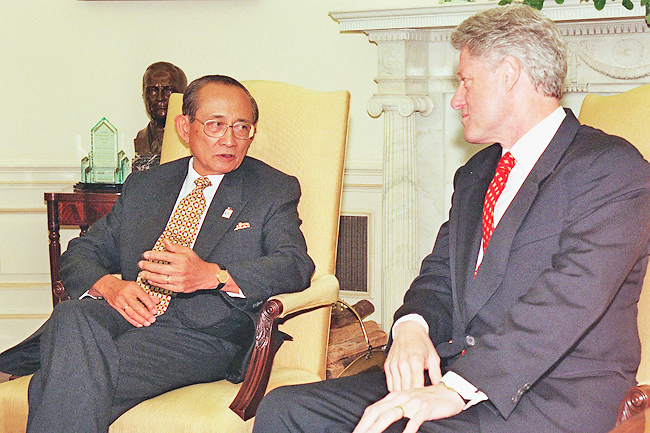MANILA (AFP) – Former Philippine president Fidel Ramos, who oversaw a rare period of steady growth and peace that won him the reputation as one of the country’s most effective leaders ever, has died aged 94, his family said yesterday.
Known as ‘Steady Eddie’ for his unflappable demeanour during the country’s regular moments of upheaval, as he guided the Philippines with a sure hand from 1992-1998.
A career military man who never previously held elected office, his professorial conduct was unlike the bombastic image of many Filipino politicians.
He was also the first Protestant to win the top office in the overwhelmingly Catholic nation, despite opposition from some in the church. He later made an aggressive push for family planning to rein in rapid population growth.
But like other top officials of his generation, Ramos played a role in the dictatorship of Ferdinand Marcos, which saw thousands killed and thousands more arbitrarily imprisoned.
In a brief statement, the Ramos family said it was “profoundly saddened” to announce the patriarch’s death. The cause was not released.

Lawmakers, diplomats, ex-politicians and the new administration posted tributes to Ramos on social media.
“I extend my deepest condolences to the family of former President Fidel Valdez Ramos who passed away today having lived a full life as a military officer and public servant,” said President Ferdinand Marcos Jr, the son and namesake of the late dictator, who took office last month.
“The legacy of his presidency will always be cherished and will be forever enshrined in the hearts of our grateful nation.”
The European Union delegation in the Philippines expressed its condolences, describing Ramos as a “dedicated statesman” and “pillar of democracy”.
A graduate of the prestigious West Point military academy in the United States (US), Ramos had a lengthy career in the armed forces, including combat against communist guerrillas, and was deployed in the Korean War as part of the Philippine contingent.
He was later commander of the paramilitary Philippine Constabulary – the key institution that enforced the brutal repression of dissent after Marcos declared martial law in 1972.







